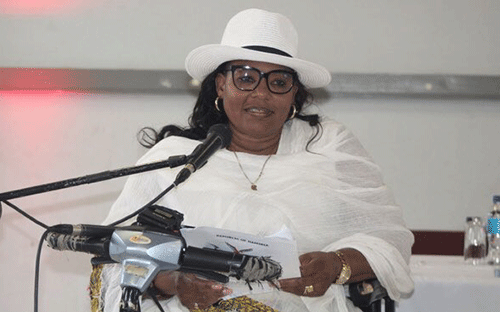Statistics shared at a stakeholder validation workshop on disability data collection showed low tertiary qualifications among persons with disabilities in Khomas and Kunene regions.
According to findings presented at the workshop by Eberhard Ripunda only 32 out of a total of 433 people with disabilities had tertiary education qualifications.
In Khomas region, only 30 out of 284 persons with disabilities surveyed, (representing 10.6%) held certificates, diplomas, degrees, or PhDs. Meanwhile, in Kunene, the numbers were even lower, with just two out of 149 individuals (1.3%) having tertiary education qualifications.
However, a number of persons with disabilities in both regions only attained junior secondary education, with Khomas recording 66 out of 284 (23.2%) and Kunene with 34 out of 149 (22.8%).
The workshop aimed to collect data regarding education levels attained by persons with disabilities in particular regions.
The survey interviewed 420 persons with disabilities across 30 enumeration areas, using the snowball and purposive sampling techniques. The data collected highlighted a huge discrepancy in accessing higher education for persons with disabilities in the two regions.
Alexia Manombe-Ncube, the Deputy Minister for Disability Affairs in the Presidency, stressed the importance of highlighting the benefits of disability inclusion to society.
“We need to demonstrate how disability inclusion contributes to economic growth, social cohesion, and human development and we can only achieve this when we work together and present the evidence to decision-makers,” she elaborated.
The workshop was implemented as part of the Disability Data Collection Project for Organisations of Persons with Disabilities (OPDs) in partnership with the Deutsche Gesellschaft für Internationale Zusammenarbeit Sustainable Development Goals Initiative (GIZ SDGI) and the National Disability Council of Namibia (NDCN).
The data collection project took place between October 2022 and April 2023, with the workshop providing a platform to discuss and validate the collected data, aiming to drive awareness and promote inclusive policies for persons with disabilities.
According to John Steytler, a team leader at Deutsche Gesellschaft fur Internationale Zusammenarbeit Sustainable Development Goals Initiative, the objective of the project is to help OPDs to become contributor hubs of quality data for the improvement of the lives of persons with disabilities.
“About 50 OPD representatives were capacitated with the knowledge and skills needed to collect data additionally, 25 enumerators went into the communities to collect data in the Khomas and Kunene regions. With the assistance of GIZ SDGI, a consultant was appointed to facilitate the data collection process. We have now completed data collection and analysis, and we are excited to share the findings of the project with other stakeholders,” he said.
Daniel Trum, a member of the NDCN, said the GIZ Global Project for the inclusion of people with disabilities and the GIZ SDGI project recognised the urgency of addressing the issues of a lack of disability data in the country, leading to the initiation of the data collection project at the beginning of 2021.
“Its primary objective was to collect comprehensive and accurate data on the most pressing unmet needs of persons with disabilities in the Khomas and Kunene regions. This data would serve as a crucial foundation for evidence-based policies and programmes aimed at promoting disability inclusion and improving the lives of persons with disabilities,” he explained.
According to Trum, OPDs identified the need for a digital application tool to assist them in data collection and data storage, recording new members, improving advocacy efforts and providing better services to persons with disabilities.
He said an assessment was done of IT infrastructure of all OPDs, to establish the requirements for the development of a digital tool for data collection.
“Simultaneously, a media campaign ran for six months in 2022, to raise awareness about the need to collect disaggregated disability data and to sensitise persons with disabilities about the importance to provide information about their circumstances during censuses or other data collection activities. This was done in phase one of the project,” he said.
Trum added that the second phase for data collection workshops in the two regions Khomas and Kunene involved training appropriately 50 enumerators in data collection techniques to equip them with the necessary data collecting skills.
Recommendations
Trum said there is need to develop and implement a national policy on inclusive employment that promotes equal opportunities, non-discrimination and affirmative action for persons with disabilities in both public and private sectors.
“Provide vocational training, skills development, career guidance, and entrepreneurship support for persons with disabilities, tailored to their needs, preferences, and abilities, and aligned with market demands and trends,” he said.
He further suggested establishing either a quota system, a subsidy, or a tax incentive programme for employers who hire, retain, or promote persons with disabilities, and to have their compliance and performance monitored regularly.
(disability)



